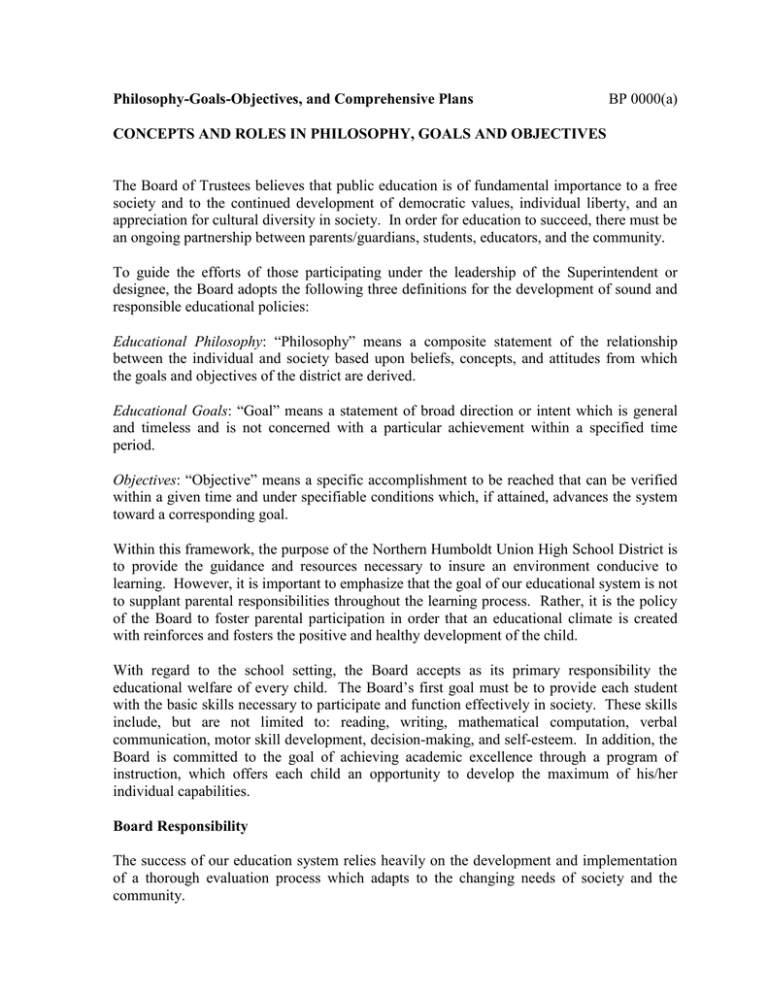Philosophy-Goals-Objectives, and Comprehensive Plans BP 0000(a)
advertisement

Philosophy-Goals-Objectives, and Comprehensive Plans BP 0000(a) CONCEPTS AND ROLES IN PHILOSOPHY, GOALS AND OBJECTIVES The Board of Trustees believes that public education is of fundamental importance to a free society and to the continued development of democratic values, individual liberty, and an appreciation for cultural diversity in society. In order for education to succeed, there must be an ongoing partnership between parents/guardians, students, educators, and the community. To guide the efforts of those participating under the leadership of the Superintendent or designee, the Board adopts the following three definitions for the development of sound and responsible educational policies: Educational Philosophy: “Philosophy” means a composite statement of the relationship between the individual and society based upon beliefs, concepts, and attitudes from which the goals and objectives of the district are derived. Educational Goals: “Goal” means a statement of broad direction or intent which is general and timeless and is not concerned with a particular achievement within a specified time period. Objectives: “Objective” means a specific accomplishment to be reached that can be verified within a given time and under specifiable conditions which, if attained, advances the system toward a corresponding goal. Within this framework, the purpose of the Northern Humboldt Union High School District is to provide the guidance and resources necessary to insure an environment conducive to learning. However, it is important to emphasize that the goal of our educational system is not to supplant parental responsibilities throughout the learning process. Rather, it is the policy of the Board to foster parental participation in order that an educational climate is created with reinforces and fosters the positive and healthy development of the child. With regard to the school setting, the Board accepts as its primary responsibility the educational welfare of every child. The Board’s first goal must be to provide each student with the basic skills necessary to participate and function effectively in society. These skills include, but are not limited to: reading, writing, mathematical computation, verbal communication, motor skill development, decision-making, and self-esteem. In addition, the Board is committed to the goal of achieving academic excellence through a program of instruction, which offers each child an opportunity to develop the maximum of his/her individual capabilities. Board Responsibility The success of our education system relies heavily on the development and implementation of a thorough evaluation process which adapts to the changing needs of society and the community.

